I lost 60 pounds after a minimally invasive experimental procedure
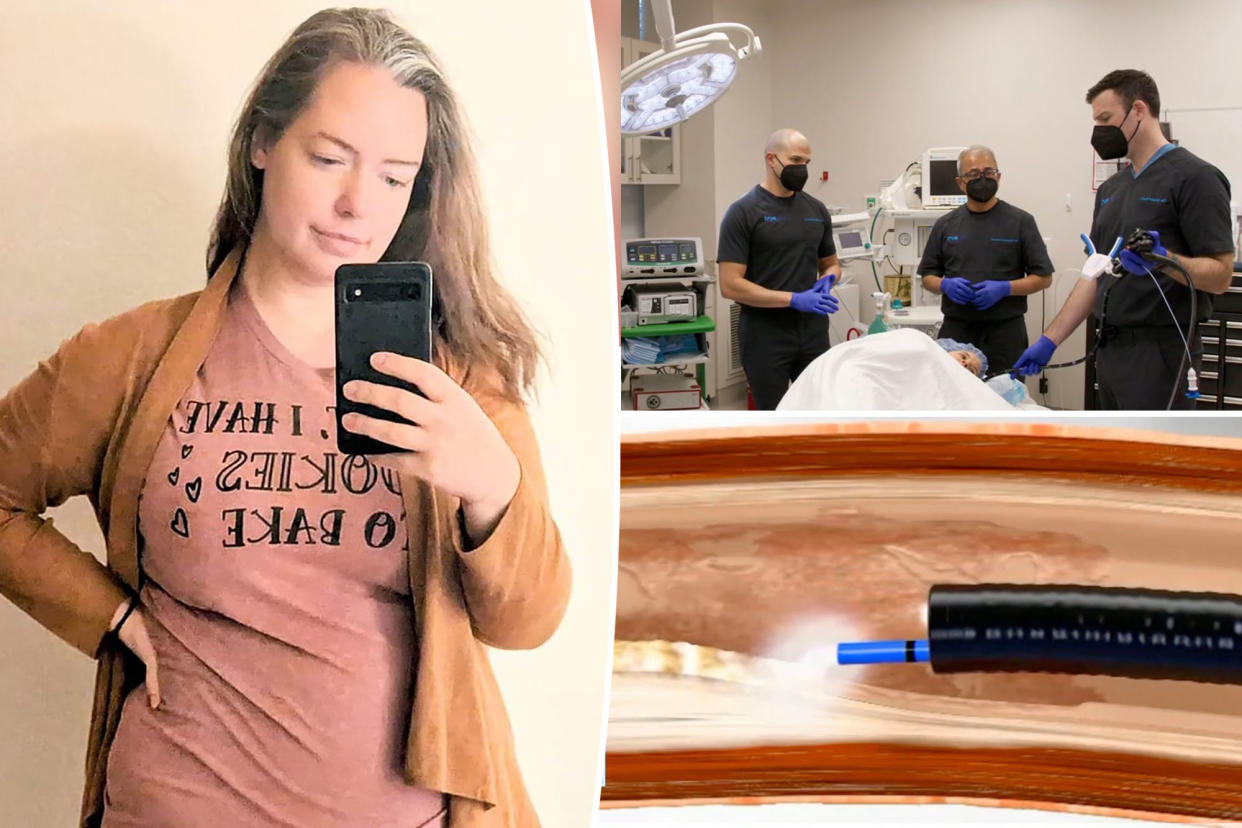
- Oops!Something went wrong.Please try again later.
A woman said she lost 60 pounds after undergoing a novel minimally-invasive weight loss procedure.
Brook Nelson underwent a procedure called endoscopic ablation as part of a clinical trial of just 10 female patients.
During the experimental operation, doctors insert a camera into the patient’s stomach at the same time that fluids are administered to protect stomach tissue, Dr. Christopher McGowan, founder of True You Weight Loss in Cory, North Carolina told Good Morning America. McGowan is an obesity medicine, internal medicine and gastroenterology specialist as well as the co-leader of the trial.
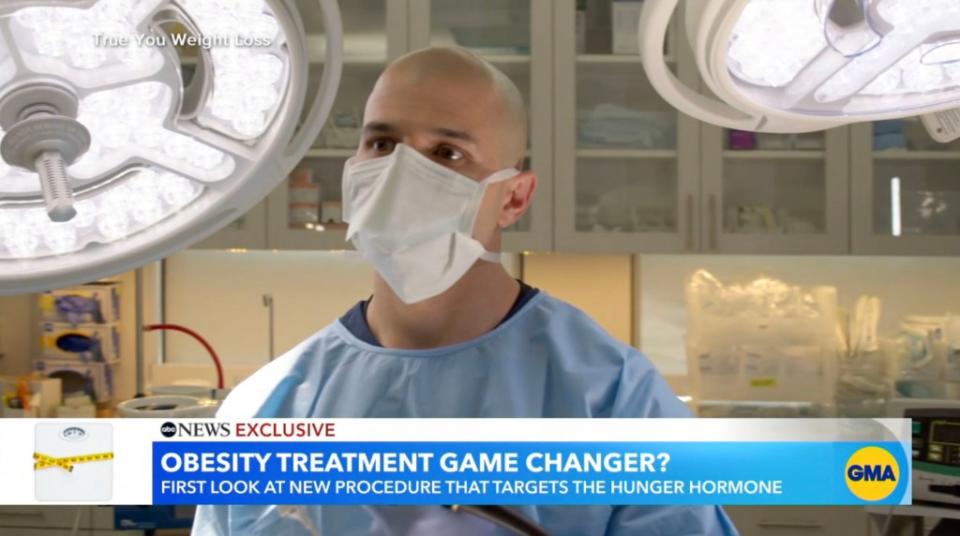
A small device then ablates, or burns, the lining of the upper portion of the stomach that makes ghrelin, a hormone that tells your brain you are hungry and which also inhibits insulin secretion and helps your body store fat. The hormone is referred to as the “hunger hormone.” The clinical trial is the first time that endoscopic ablation to target ghrelin has been tested in humans.
Nelson, who was once over 200 pounds, said she lost 20 pounds within the first 6 months of her surgery.
“The constant just wanting of food has drastically decreased,” Nelson told “Good Morning America.”
“There’s still moments where I want a chocolate chip cookie, but there’s a lot more moments when I find myself wanting something like greens,” she added.
McGowan said that patients in the trial reduced their weight by 7%.
“We do have patients who are a year or more beyond their initial procedure, and what we are seeing is that they continue to have a diminishment, decrease in hunger [and] continue to report greater control over eating,” McGowan said.
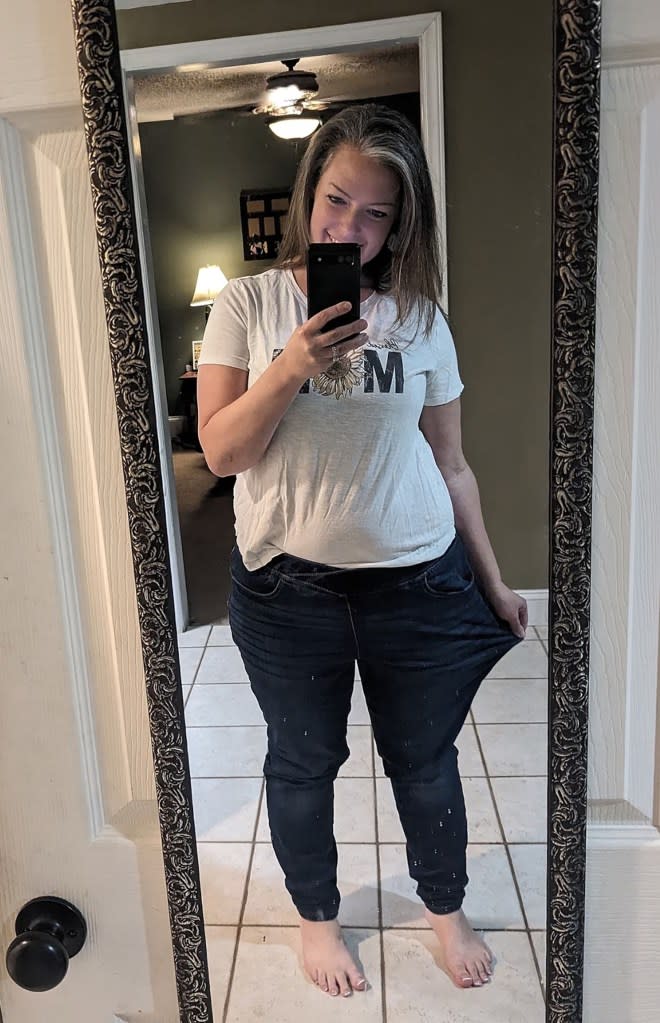
The procedure is “minimally invasive” but still comes with some risks.
“Risks of this technology could include things like ulcers, bleeding, somehow injuring the stomach. These were things we were really careful about,” the doctor said.
“In this case, everything was mild and that was the cramping and gas and nausea, things you’d expect when you’d perform a procedure on the stomach. But there were no complications whatsoever,” he added.
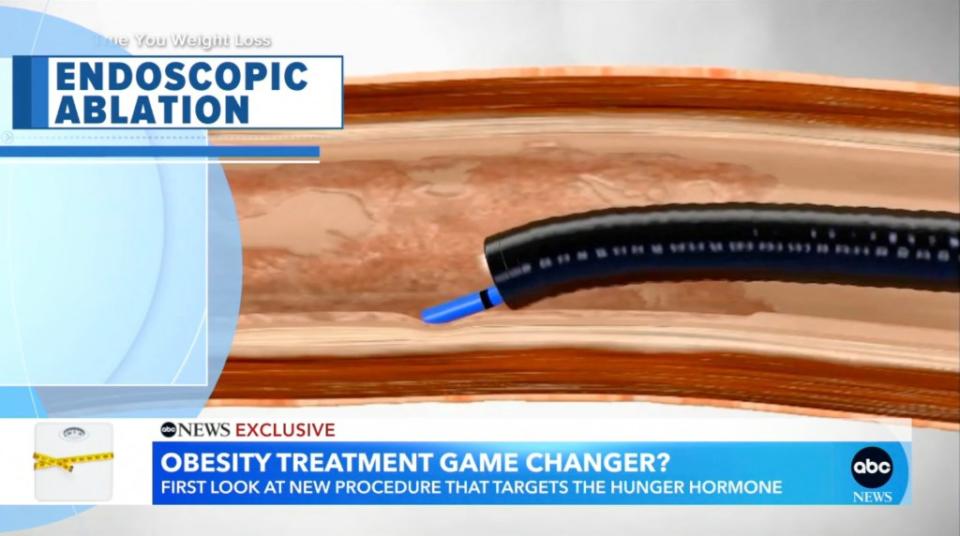
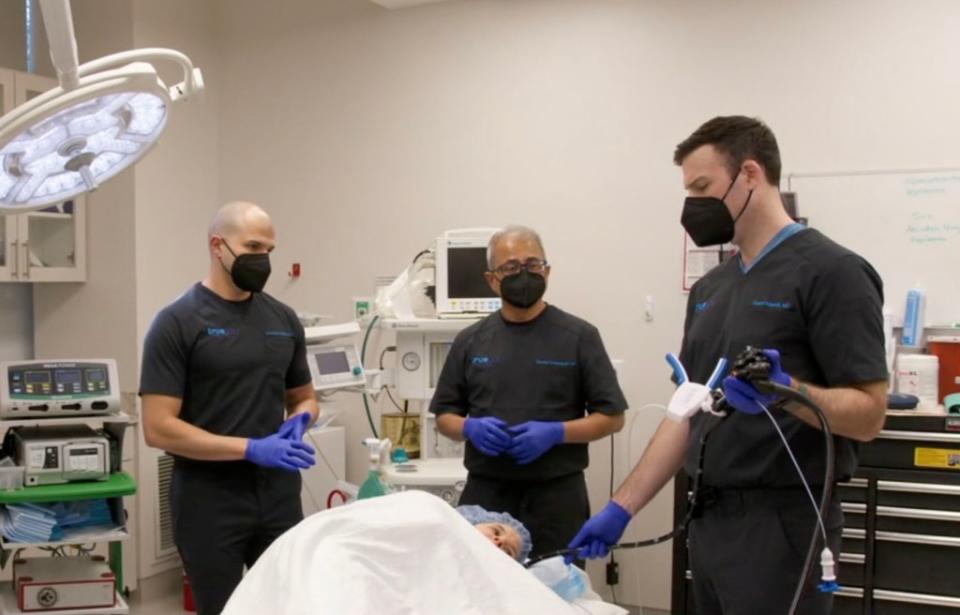
As it stands, patients who are severely obese, meaning that they have a body mass index of 40 or higher, are eligible for surgical intervention such as gastric bypass surgery according to Penn Medicine. A little more than 42% of people in the US are obese, Healthline reported.
The endoscopic ablation procedure will have to go through more testing before it’s available to the public. The doctor plans to present the results from the trial at a medical conference in Washington, D.C. later this month.

